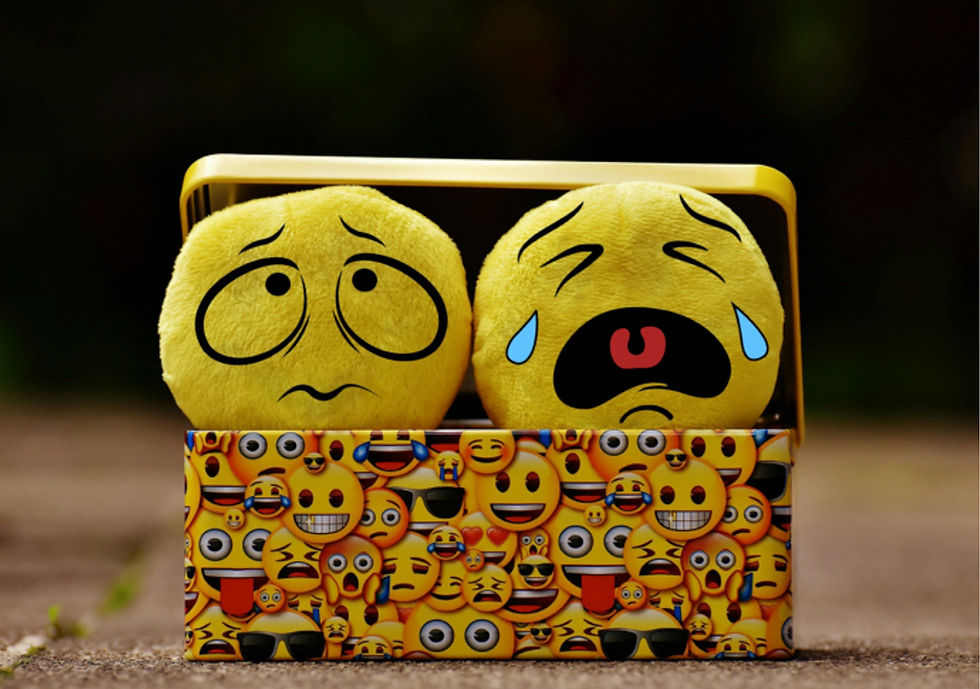Better to express than suppress
- Sally Dore
- Mar 18, 2017
- 3 min read
Typically we think of men as being ‘macho’, it’s a stereotype that goes back generations, probably ignited by the image of men we saw in films or read about in romance novels, you know the James Bond type. Stories of heroic, strong men racing in to rescue the damsel in distress – a fairytale by today’s standard, but nonetheless a vivid image that does more damage than good.

All children begin their lives with complete frankness about their needs, as babies and as toddlers they reveal their emotions with no compunction – what you see is certainly what you get. If they cry, they get attention, whether it’s a nappy change or a simple hug they let us know and their ability to be direct is reinforced by our responses. Yet somehow as they get older we start subscribing this behavior as attention-getting, roll our eyes in exasperation and in some cases put them down for being so manipulative. By begrudging what is a child’s healthy attention-seeking behavior, we unwittingly train them to become indirect communicators. So children then learn to use more oblique ways to get attention, they cause a ruckus, feign hurt or pick on other children or in some cases start with negative behavior (negative attention is still attention). We leave them no other way to get our attention… that is until they stop trying completely.
As a mother of a teen son, it’s been a challenge to fully understand how he feels especially when he chooses to act out his feelings instead of talk about them. Emotions are not bad behavior, and I do not ever want to emotionally censor my son. However I think the task at hand is giving him the space to understand what he is feeling, not adding my own feelings into the mix – I need to own my feelings of guilt, anger or frustration and reach for compassion and patience. Trust me, there have been a few moments where my resolve was truly tested. What I will not allow is acting out… so no door slamming or name-calling - if he can’t talk, then he writes me a letter. That way he doesn’t feel like he is confronting me and he gets some time to really think about what he is feeling. For younger boys it might work better to draw what they feel, put his feelings into shapes and colours – then using his drawings to help him put words to some of those feelings.
Research has shown that suppressing emotion is psychological as well as physically unhealthy not to mention the damage it does to your relationships. So how do we teach our boys to express their emotions? It’s rather simple… by example! Our boys are as emotionally complex and complicated as we are, and many times they don’t want a solution they simply want to be heard. So as parents, we listen, and really hear the pain and the fear under emotions like anger or the regret and longing of a son with an absent father. We don’t listen to judge, explain away or minimize the emotion, we simply hear them out, the offer understanding and support. Trying to cheer your son up or distract him from a negative emotion will teach him to rather suppress than express. It is completely normal to feel sad or angry.
If we fail to listen with empathy, we will no longer be the adult our child turns to when they need help. We no longer have influence in their lives. And we will have taught our sons to hide how they feel and become restrained and emotionally frustrated men. Listening is at the heart of our connection with our boys.












































Comments